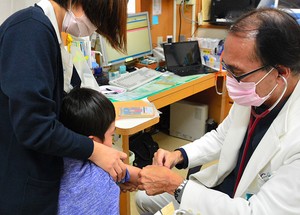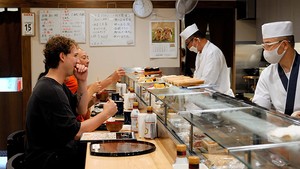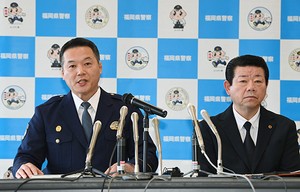By TOMOHIRO MURAYAMA/ Staff Writer
December 22, 2023 at 16:28 JST
 The Science Council of Japan holds a general meeting in Tokyo on Oct. 2, 2023. (Tomohiro Murayama)
The Science Council of Japan holds a general meeting in Tokyo on Oct. 2, 2023. (Tomohiro Murayama)
Long locked in a fight to maintain its autonomy, the Science Council of Japan (SCJ) is likely to be detached from the government and become an independent entity.
An expert panel of the Cabinet Office, headed by Teruo Kishi, a professor emeritus at the University of Tokyo, recommended in an interim report on Dec. 21 that the SCJ, where scholars make policy proposals to the government, maintain its independence.
“It would be desirable for the organization to have a corporate personality separate from the government,” the report said.
However, it is unclear whether the council's independence can be assured since it will continue to mostly be funded by the government, which will also appoint an auditor and assessment committee.
The SCJ was established in 1949 as a special organization operating independently from the government under the jurisdiction of the prime minister.
The interim report describes the council’s function as “providing objective, and academically and scientifically based advice from an independent standpoint to the government and others.”
The report said that the content of the advice may not always align with government policy, stressing the need for as much independence as possible.
The experts concluded that it would be desirable to separate the SCJ from the government and incorporate it.
The council and the government have been locked in a bitter dispute since 2020.
When then-Prime Minister Yoshihide Suga broke with tradition and refused without explanation to endorse the appointment of six candidates for council membership, the SCJ strongly opposed the refusal.
The government shifted the focus of the debate, bringing up issues of the organization and management of the council.
The current administration of Prime Minister Fumio Kishida wanted to resolve these issues as soon as possible.
In December last year, the government presented a proposal to maintain its status as a special government organization.
But the SCJ opposed the proposal, arguing that involving outside experts in selecting new members could threaten academic independence.
The bill was not submitted to the Diet in the spring, and the expert panel has been discussing organizational reform since August.
Following the interim report, the Cabinet Office also released a concrete proposal for the incorporation of the council.
The proposal said the membership selection will be made “independently from among scientists,” but will include checking by outside experts during the process.
According to the proposal, the government will continue to provide necessary financial support for the annual operating costs of about 1 billion yen ($7 million), which is currently covered by government funds, after diversifying the financial resources.
The proposal calls for strengthened governance since most of the costs are funded by the government.
The proposal also said that an auditor to oversee operations and finances and an assessment committee to review activities and operations will be set up.
But both will be appointed by a minister in charge, leaving room for government intervention in the council’s operations and activities.
The government will create a new bill while listening to opinions from the council.




















Here is a collection of first-hand accounts by “hibakusha” atomic bomb survivors.
A peek through the music industry’s curtain at the producers who harnessed social media to help their idols go global.
Cooking experts, chefs and others involved in the field of food introduce their special recipes intertwined with their paths in life.
A series based on diplomatic documents declassified by Japan’s Foreign Ministry
A series about Japanese-Americans and their memories of World War II